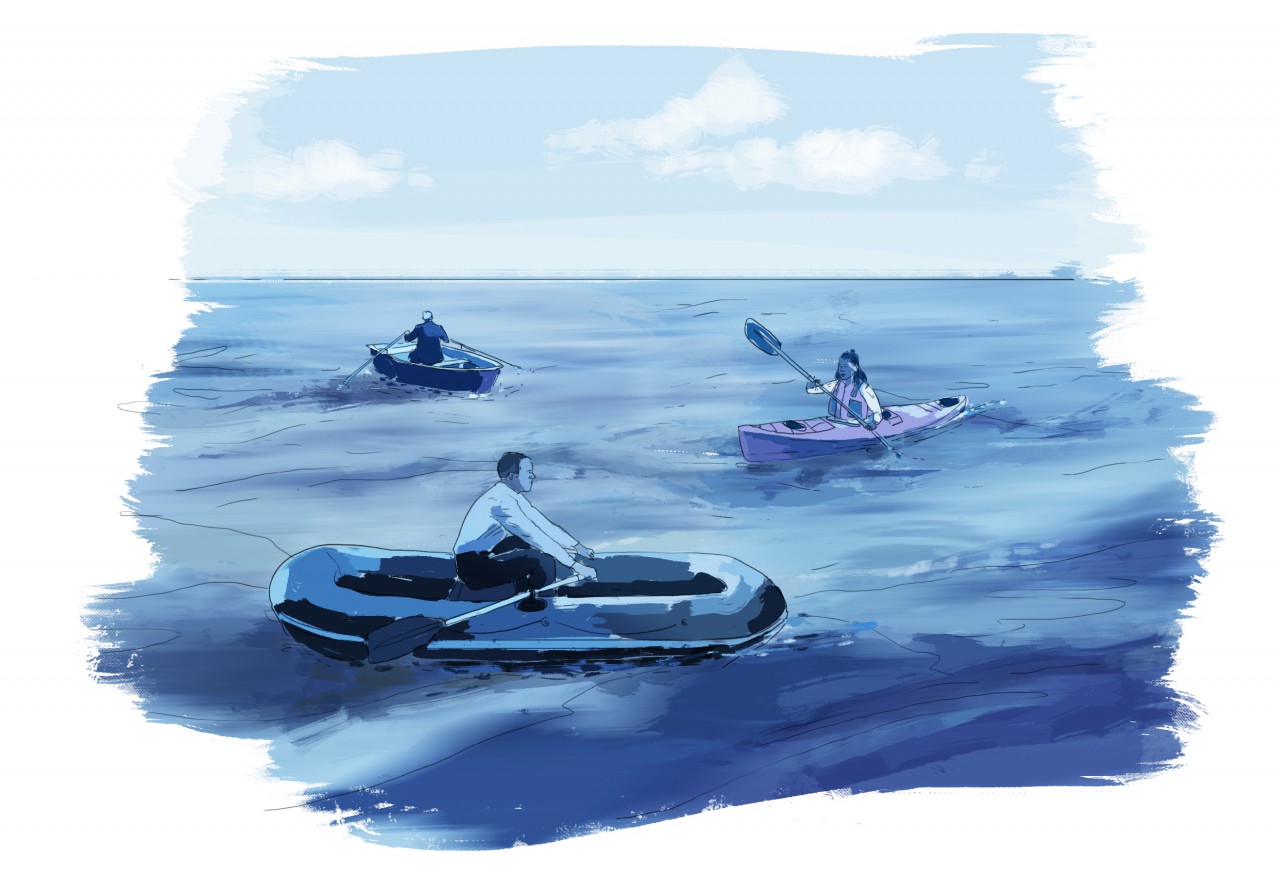.png)
.png)

By Guest Blogger Selma Burnett-Pronk
Ledership Coach | Connector | Co-traveller
www.co-change.life
LinkedIn
selma@co-change.life
We've all been affected by the consequences of COVID-19, yet each in a different way. Metaphorically speaking, we're all in the same ocean – but we are each rowing in a different boat. Still, this pandemic has shown us that we are much more connected than we realized.
As a leadership coach, I’ve been fortunate to work with many leaders since the pandemic started. From Europe to the USA, India to China – all have been working from home, and all are impacted by COVID-19. Each person has their own unique story.
During this period, I’ve rediscovered the power of normalizing what we are experiencing: acknowledging that what is occurring inside of us – the frustration, uncertainty, anxiety or fear we feel - are normal, typical, or expected. It is a technique that can have a powerful impact when carefully used, at the right time. Knowing that the feelings you are experiencing are 'normal' or ‘typical’, can instantly create a feeling of calmness, self-compassion, and acceptance.
It definitely worked for me at the beginning of the pandemic, when I was trying to cope with my 'new reality' of being at home (How long will this last?) and concern about my loved ones’ health (Will they be OK?). Team coaching and leadership program cancellations were gushing in (How long can I last without income?). We homeschooled our young children for the first time (How can we best help them?). My husband and I negotiated in ‘the quiet room’ (How do we cope?). Not easy. Usually energetic and flexible, I was finding myself in some kind of freeze (When can we please go back to normal?).
When people told me that they recognized what I was going through as something ‘normal’, I was able to accept my situation much better. As a leadership coach, I’m trained to ask questions that stimulate the coachee to come up with solutions. However, sometimes one doesn’t want an answer, but rather just wants to know that what they are experiencing is normal (and therefore OK).
Having said that, the danger of normalizing too much or at the wrong time is that we may inadvertently downplay someone’s experience. And we may even (falsely) think we know what they're going through. We could (wrongly) assume that everyone experiences a given situation in the same way.
I’m sure we’ve all been in those strange social interactions where people unskillfully use the normalizing technique to avoid having to ask questions or to actually show interest. The best antidote to this is to stay curious. While people’s situations may seem familiar, when you go into more depth, the story becomes unique to them. Staying curious will keep you out of the trap of making (incorrect) assumptions.
As a company, you can also create opportunities for your employees to ‘normalize’ their situations. For example, one of my clients is offering coaching sessions to ALL of its employees, so that they can talk about the challenges that have arisen from COVID-19 which impact their wellbeing, productivity, and motivation. Ten percent of the workforce has taken advantage of the opportunity – and leadership has received overwhelmingly positive feedback. By creating this offer, the company normalized the fact that the new situation has brought new challenges. Furthermore, leadership allowed and encouraged its employees to explore and manage their own situations.
I was honored to be invited onto each person’s ‘boat’. Realizing that they weren’t the only ones in the ocean was comforting. Sharing their vessel with someone external, having a chance to verbalize their situation and be attentively listened to – allowed them to create new and effective solutions to the challenges they face. As one coachee said: “Just being heard in a safe space can be the best medicine.”
So the next time COVID-19 enters the conservation, discover the other person’s unique situation by being curious and listening. Then call on the power of normalizing to remind both of you of how connected we all are.